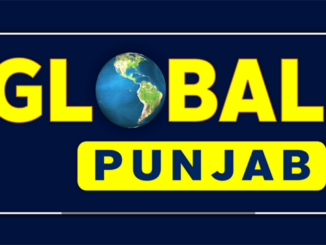The much-awaited Union Cabinet expansion of Prime Minister Narendra Modi’s second term has finally taken place. In one of the biggest ministry expansions in India’s history, 36 new ministers have been inducted, seven promoted to Cabinet rank, while 12 sitting ministers have been shown the door. Modi in his second innings, at a time when India is at a critical crossroad during the COVID-19 pandemic, is building a fresh team which will lay the foundation of a new India, and, of course, will help the BJP in the 2024 general elections.
Modi, running his Cabinet like a corporate chief executive officer, carried out a performance appraisal of various ministers over the past few weeks. The ministers were evaluated on various key performance indicators (KPIs) like vision, mission, objectives, targets versus action plan, impact, communication and outreach.
Former Prime Minister Manmohan Singh had introduced a Results Framework Document (RFD) to evaluate the performance of his Cabinet colleagues, but had to shelve it after some ministers opposed such evaluation.
Modi, however, adopted this people-centric performance approach, giving it his personal touch. He believes that transparency and accountability are the two cornerstones of any pro-people government and feedback from them improves public participation in decision-making.
Twelve of the 53 ministers (which amounts to 22 percent) who were found lacking were asked to put in their papers. Seven of the 53 ministers (13 percent), who scored well in the evaluation, have been elevated.
After the July 7 expansion, the Union ministry will now operate at 95 percent capacity, with just four positions vacant.
Big names like Ravi Shankar Prasad and Prakash Javadekar, prominent spokespersons of the government, are among the 12 asked to leave. The mishandling of the COVID-19 second wave which has affected the government’s image and led to a dip in Modi’s popularity ratings, has probably cost Health Minister Harsh Vardhan his job.
The Cabinet reshuffle clearly shows that Modi has taken feedback from all stakeholders and has responded to public opinion. Through this he has also given a message to the new inductees that they need to deliver.
Modi has also not necessarily opted for domain expertise in the reshuffle to encourage new faces to bring in new ideas to provide solutions. The example being the preference of Kiren Rijiju over Bhupender Yadav for the law ministry.
Apart from performance, the focus has been on youth, inclusiveness, broader representation to communities, and faces with administrative experience.
MPs from 25 states and union territories are now ministers in the Union Cabinet. The new Cabinet includes seven former IAS officers, 11 women and 14 ministers below the age of 50.
The BJP was earlier referred to as a party of the upper caste and ‘baniyas’. It has shed this image over the last few years. A majority of the OBC vote-bank nationally, which was earlier with the Congress and erstwhile Janata Dal, has moved to the BJP. The party won the maximum SC/ST reserved seats in the 2019 general elections.
Today Other Backward Classes (OBCs), Scheduled Castes (SCs) and Scheduled Tribes (STs), apart from the upper caste, are its core support block.
The expansion gives due weightage to people from these communities and bolsters the image of the party as the champion their cause.
Currently, 27 ministers out of 77 are from the OBC community, 12 from the SC and eight from the ST community, representing around 60 percent of the ministry strength.
This is expected to boost the BJP’s prospects in state elections due next year. Seven states, including the all-important Uttar Pradesh, go to the polls in 2022, with the BJP in power in six of them.
This mid-term course correction is likely to bring transparency and accountability in governance and help the BJP win the ensuing state as well as general elections with its deft political messaging.
Here is the complete list of ministers who were newly inducted into the Union Cabinet on Wednesday, July 7
Narendra Modi: Prime Minister and also in-charge of: Ministry of Personnel, Public Grievances and Pensions; Department of Atomic Energy; Department of Space; All important policy issues; and All other portfolios not allocated to any Minister
CABINET MINISTERS
Raj Nath Singh: Minister of Defence
Amit Shah: Minister of Home Affairs; and Minister of Cooperation
Nitin Jairam Gadkari: Road Transport and Highways
Nirmala Sitharaman: Finance and Corporate Affairs
Narendra Singh Tomar: Agriculture and Farmers Welfare
Dr Subrahmanyam Jaishankar: External Affairs
Arjun Munda: Tribal Affairs
Smriti Zubin Irani: Women and Child Development
Piyush Goyal: Commerce and Industry, Consumer Affairs, Food and Public Distribution and Textiles
Dharmendra Pradhan: Education and Skill Development and Entrepreneurship
Pralhad Joshi: Parliamentary Affairs, Coal and Mines
Narayan Tatu Rane: Micro, Small and Medium Enterprises
Sarbananda Sonowal: Ports, Shipping and Waterways, and AYUSH
Mukhtar Abbas Naqvi: Minority Affairs
Dr Virendra Kumar: Social Justice and Empowerment
Giriraj Singh: Rural Development and Panchayati Raj
Jyotiraditya M. Scindia: Civil Aviation
Ramchandra Prasad Singh: Steel
Ashwini Vaishnaw: Railways; Communications; and Electronics and Information Technology
Pashu Pati Kumar Paras: Food Processing Industries
Gajendra Singh Shekhawat: Jal Shakti
Kiren Rijiju: Law and Justice
Raj Kumar Singh: Power and New and Renewable Energy
Hardeep Singh Puri: Petroleum and Natural Gas; and Housing and Urban Affairs
Mansukh Mandaviya: Health and Family Welfare; and Chemicals and Fertilizers
Bhupender Yadav: Environment, Forest and Climate Change; and Minister of Labour and Employment
Dr Mahendra Nath Pandey: Heavy Industries
Parshottam Rupala: Fisheries, Animal Husbandry and Dairying
G Kishan Reddy: Culture; Minister of Tourism; and Minister of Development of North Eastern Region
Anurag Singh Thakur: Information and Broadcasting; and Youth Affairs and Sports
MINISTERS OF STATE (INDEPENDENT CHARGE)
Rao Inderjit Singh: Minister of State (Independent Charge) of the Ministry of Statistics and Programme Implementation; Minister of State (Independent Charge) of the Ministry of Planning; and Minister of State in the Ministry of Corporate Affairs
Dr Jitendra Singh: Minister of State (Independent Charge) of the Ministry of Science and Technology; Minister of State (Independent Charge) of the Ministry of Earth Sciences; Minister of State in the Prime Minister’s Office; Minister of State in the Ministry of Personnel, Public Grievances and Pensions; Minister of State in the Department of Atomic Energy; and Minister of State in the Department of Space
MINISTERS OF STATE
Shripad Yesso Naik, Faggansingh Kulaste, Prahalad Singh Patel, Ashwini Kumar Choubey, Arjun Ram Meghwal, General (Retd) V K Singh, Krishan Pal, Danve Raosaheb Dadarao, Ramdas Athawale, Sadhvi Niranjan Jyoti, Dr Sanjeev Kumar Balyan, Nityanand Rai, Pankaj Chaowdhary, Anupriya Singh Patel, S P Singh Baghel, Rajeev Chandrasekhar, Shobha Karandlaje, Bhanu Pratap Singh Verma, Darshana Vikram Jardosh, V Muraleedharan, Meenakashi Lekhi, Som Parkash, Renuka Singh Saruta, Rameswar Teli, Kailash Choudhary, Annpurna Devi, A Narayanaswamy, Kaushal Kishore, Ajay Bhatt, B L Verma, Ajay Kumar, Devusinh Chauhan, Bhagwanth Khuba, Kapil Moreshwar Patil, Pratima Bhoumik, Dr Subhas Sarkar, Dr Bhagwat Kishanrao Karad, Dr Rajkumar Ranjan Singh, Dr Bharati Pravin Pawar, Bishweswar Tudu, Shantanu Thakur, Dr Munjapara Mahendrabhai, John Barla, Dr L Murugan, Nisith Pramanik





Be the first to comment